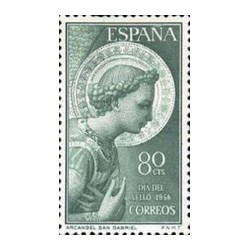- جدید
- ناموجود



توجه : درج کد پستی و شماره تلفن همراه و ثابت جهت ارسال مرسوله الزامیست .
توجه:حداقل ارزش بسته سفارش شده بدون هزینه پستی می بایست 180000 ریال باشد .
توجه : جهت برخورداری از مزایای در نظر گرفته شده برای مشتریان لطفا ثبت نام نمائید.
Victoria Kent Siano (March 6, 1891 – September 25, 1987) was a Spanish lawyer and republican politician.
Born in Málaga, she was affiliated to the Radical Socialist Republican Party and came to fame in 1930 for defending – at a court martial – Álvaro de Albornoz, who would shortly afterwards go on to become minister of justice and later the future president of the Republican government in exile (1947 to 1949 and 1949 to 1951). She became a member of the first Parliament of the Second Spanish Republic in 1931. That same year, the President of the Republic, Niceto Alcalá-Zamora, appointed her Director General of Prisons, a post she held until 1934, and she actively continued the reforms in the prison service that had been started by Concepción Arenal.
Kent was against giving women the right to vote immediately, arguing that, as Spanish women lacked at that moment social and political education enough to vote responsibly, they would be very much influenced by the Catholic priests, damaging left wing parties. She had a controversy about this subject with another feminist in the parliament, Clara Campoamor. This caused her certain unpopularity and, when women were given right to vote, she lost her seat – as she had predicted – to the conservative majority in 1933.
After the Spanish Civil War, Kent went into exile in Mexico, but soon moved on to the United States. In New York City she published the Ibérica review from 1954 to 1974,[1] which featured news for Spanish people exiled in the United States. She died in New York in 1987. Crane and Kent are buried alongside each other at Umpawaug Cemetery, Redding, Connecticut.
Colleges in Málaga, Fuenlabrada, Marbella, Torrejón de Ardoz (Instituto de Educación Secundaria Victoria Kent), and a railway station in her home town of Málaga, have been named after her.
Shortly after her arrival in Madrid, she joined the Asociación Nacional de Mujeres Españolas y la Juventud Universitaria Femenina (a women's rights organization), directed by Maria Espinosa de los Monteros. She represented this entity at a conference in Prague in 1921. After affiliating the Radical Socialist Republican Party, she was elected as a member of the Parliament of the Republican-Socialist Conjunction of the Republican Court in 1931. In the election on February 16, 1936, Victoria Kent was elected member of the Parliament in Jaen, for the Republican Left, which was a part of the Popular Front. She was also Vice President of the Lyceum Club, since 1926.
تشکر نظر شما نمی تواند ارسال شود
گزارش کردن نظر
گزارش ارسال شد
گزارش شما نمی تواند ارسال شود
بررسی خود را بنویسید
نظر ارسال شد
نظر شما نمی تواند ارسال شود

check_circle
check_circle















